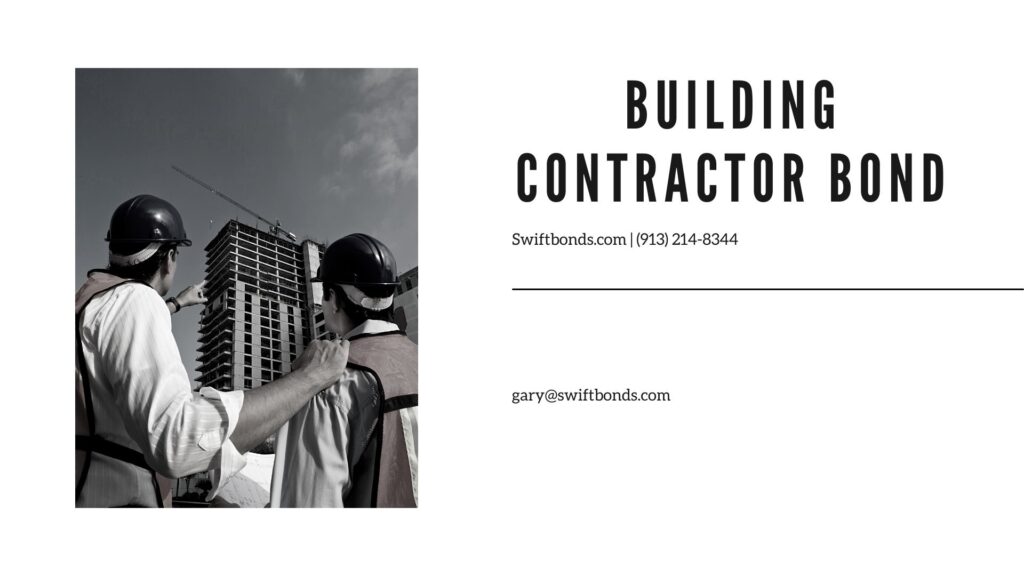
Get An Instant Quote on Mountain Brook, AL-Building Contractor ($10,000) Bond Now

Introduction
In the scenic landscape of Mountain Brook, AL, where architecture blends with nature, building contractors play a pivotal role in shaping the community's skyline. To ensure the quality and integrity of construction projects, the city requires building contractors to obtain a Building Contractor Bond. This bond serves as a guarantee of performance and compliance with building codes and regulations. In this article, we delve into the intricacies of the Mountain Brook, AL – Building Contractor ($10,000) Bond, exploring its purpose, requirements, and significance for contractors and the community.

Understanding the Purpose
The Mountain Brook, AL – Building Contractor Bond serves a fundamental purpose in safeguarding the interests of property owners, occupants, and the public at large. By requiring contractors to obtain this bond, Mountain Brook aims to ensure that construction projects meet safety, quality, and regulatory standards, thereby minimizing the risk of accidents, defects, and hazards. Additionally, the bond provides recourse for property owners and stakeholders in the event of construction-related disputes, defects, or failures, ensuring that affected parties receive proper compensation or resolution.
Requirements and Application Process
Obtaining a Mountain Brook, AL – Building Contractor Bond involves meeting specific criteria set forth by city authorities. Contractors typically undergo a rigorous application process, which may include background checks, proof of licensure, and financial documentation. Additionally, they must secure the bond from a licensed surety company, with the bond amount set at $10,000. By fulfilling these requirements, contractors demonstrate their commitment to professionalism, competence, and accountability in the construction industry.
Implications for Contractors and the Community
For contractors, the Mountain Brook, AL – Building Contractor Bond carries significant implications for their reputation, liability, and legal obligations. It serves as a mark of reliability and trustworthiness, enhancing their credibility and competitiveness in the marketplace. Failure to maintain compliance with the bond requirements can result in fines, penalties, and damage to their reputation within the community. Conversely, for the community, the bond provides assurance that construction projects will be executed with expertise, adherence to regulations, and a focus on safety and quality, thereby safeguarding property values and public welfare.
Conclusion
As Mountain Brook continues to evolve and grow, the Building Contractor Bond remains a vital tool in ensuring the integrity and reliability of construction projects within the city. By understanding its purpose, meeting the requisite requirements, and embracing its implications, both contractors and the community can contribute to the responsible and sustainable development of Mountain Brook, AL. In doing so, they uphold the city's commitment to excellence, safety, and quality of life for its residents and visitors.
What is the Mountain Brook, AL – Building Contractor Bond?
The Mountain Brook, AL – Building Contractor Bond is a cornerstone of the city's construction industry regulations. But what exactly does this bond entail? Essentially, it is a form of surety bond required by the city to ensure that building contractors adhere to all applicable laws, codes, and standards while undertaking construction projects. By obtaining this bond, contractors provide financial security to cover potential liabilities or damages arising from non-compliance or failures in their work.
Frequently Asked Questions
Can the Building Contractor Bond Cover Costs Associated with Delayed Completion of Construction Projects Due to Unforeseen Circumstances?
An uncommon question that may arise among building contractors regarding the Mountain Brook, AL – Building Contractor ($10,000) Bond concerns its coverage for expenses related to delayed completion of construction projects due to unforeseen circumstances. Contractors may wonder whether the bond extends to cover additional costs incurred as a result of project delays caused by factors beyond their control, such as inclement weather, material shortages, or regulatory delays. The answer depends on the specific terms outlined in the bond agreement and the regulations set forth by the city. While some bonds may offer coverage for delay-related expenses, others may require additional endorsements or separate insurance coverage for such costs. Contractors should consult with their surety bond provider or legal counsel to clarify the coverage for delay-related expenses under the bond.
Are There Provisions for Bond Claims If Construction Defects or Failures Are Discovered After the Completion of the Project?
Another less common inquiry pertains to the provisions for bond claims if construction defects or failures are discovered after the completion of the project in Mountain Brook. Property owners or occupants may inquire whether they can file a claim against the bond if they encounter defects, deficiencies, or failures in construction work after the project has been completed and accepted. Additionally, they may wonder about the process for filing bond claims, documenting defects, and seeking compensation for repair or remediation expenses. The applicability of bond claims for post-completion defects often depends on the specific terms outlined in the bond agreement and the regulations set by the city. Property owners should consult with legal counsel or regulatory authorities to understand the procedures for filing bond claims related to post-completion defects or failures.
Can Contractors Obtain Waivers or Reductions of Bond Requirements for Small-Scale or Residential Construction Projects?
A lesser-known aspect that contractors may inquire about is the possibility of obtaining waivers or reductions of bond requirements for small-scale or residential construction projects in Mountain Brook. Contractors may wonder whether they can request exemptions from the bond requirement or seek reductions in bond amounts for projects that involve minimal risks or are of lower value, such as home renovations or small-scale construction work. The availability of waivers or reductions often depends on the discretion of city officials overseeing regulatory compliance. Contractors should consult with regulatory authorities or licensing agencies to inquire about the possibility of obtaining waivers or reductions of bond requirements for qualifying projects and understand the procedures for requesting such exemptions.
